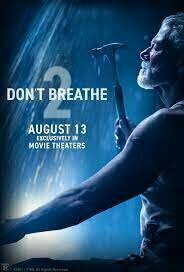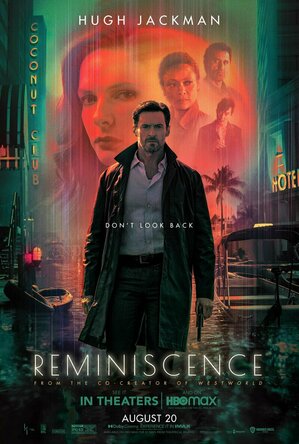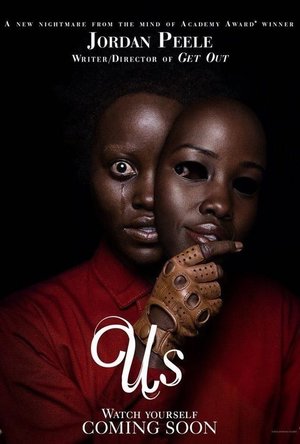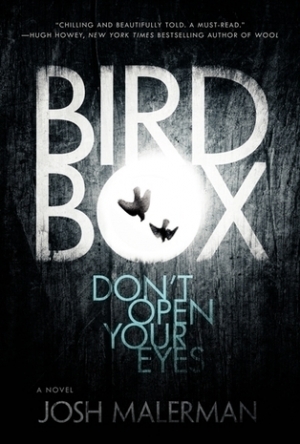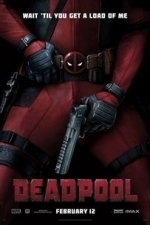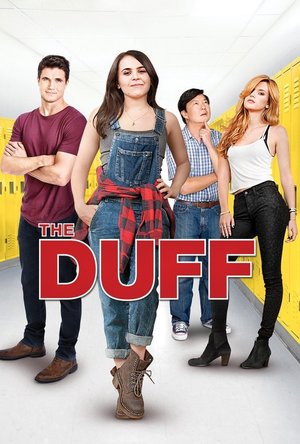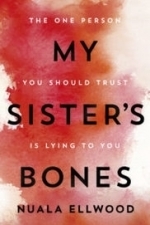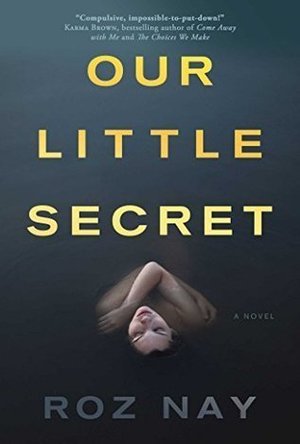Search
Search results
Bob Mann (459 KP) rated Don't Breathe 2 (2021) in Movies
Aug 18, 2021
Nicely paced direction and non stop (bloody) action (1 more)
Madelyn Grace delivers a nice and professional performance
Not very original (1 more)
Should we be rooting for Norman at all?
That kid’ll need counselling for life!
I mean. If there was ever an opportunity to come up with a clever title for a sequel, this was it right? "Breathe Again"; "Hold it for a bit longer"; "Are You Turning Blue Yet?". But no... we just get a boring old "2" at the end!
Positives:
- Five years is an awfully long time to wait for a sequel! I have to admit I needed to read through my original review for "Don't Breathe" and the synopsis on IMDB before I went to see this. But, given that it is a fairly standard schlock-horror home-invasion movie, this is a nicely pieced together movie. Debut director Sayagues, who co-wrote the first film with original director Fede Alverez, moves the action along at a non-stop pace leaving you quite exhausted by the end of the (pleasantly short) 98 minutes.
- Stephen Lang nicely retreads his monster from the first movie as a besotted but anxious parent. But particularly good I thought was Madelyn Grace who plays the 11 year old Phoenix. I never once thought "there's a child actress doing a performance". Great job!
Negatives:
- It doesn't get many brownie points for originality: the blindness dice was already rolled in the original. So here we get some re-tread scenes of "the blind man being king", with red insecticide spray replacing the darkness.
- It never feels quite right that you are supposed to be cheering on Nordstrom: someone with virtually no redeeming features (other than a love for dogs).
- The original film had a decidedly icky moment with the whole baster thing. Here we have an equally icky, if ridiculous, plot-twist, taking us into a very dark place indeed. But what is supposed to be a shock-horror moment actually had me in fits of laughter, since all I could think of was a particular scene in "Monty Python and the Meaning of Life"!
Summary Thoughts on "Don't Breathe 2": We've been here so many times before that it's almost a (bloody) paint by numbers. But I have to admit that I thought this one was well done, and a cut above the norm. The first movie made $158M on a budget of just $10M. This one has a (restrained) $15M budget, and has already made that back. Good for them. The gore factor makes it not one for the illustrious Mrs Movie Man (who wisely didn't come). But for horror fans out for a nice gory little romp, this has its attractions.
And by the way, there is a 'monkey' (post-credit scene in One Mann's Movies speak) in this one. Well, Alvarez and Sayagues aren't going to dead-end their options for a "Don't Breathe 3" are they?
(For the full graphical review, please check out onemannsmovies on the web, Facebook and Tiktok. Thanks.)
Positives:
- Five years is an awfully long time to wait for a sequel! I have to admit I needed to read through my original review for "Don't Breathe" and the synopsis on IMDB before I went to see this. But, given that it is a fairly standard schlock-horror home-invasion movie, this is a nicely pieced together movie. Debut director Sayagues, who co-wrote the first film with original director Fede Alverez, moves the action along at a non-stop pace leaving you quite exhausted by the end of the (pleasantly short) 98 minutes.
- Stephen Lang nicely retreads his monster from the first movie as a besotted but anxious parent. But particularly good I thought was Madelyn Grace who plays the 11 year old Phoenix. I never once thought "there's a child actress doing a performance". Great job!
Negatives:
- It doesn't get many brownie points for originality: the blindness dice was already rolled in the original. So here we get some re-tread scenes of "the blind man being king", with red insecticide spray replacing the darkness.
- It never feels quite right that you are supposed to be cheering on Nordstrom: someone with virtually no redeeming features (other than a love for dogs).
- The original film had a decidedly icky moment with the whole baster thing. Here we have an equally icky, if ridiculous, plot-twist, taking us into a very dark place indeed. But what is supposed to be a shock-horror moment actually had me in fits of laughter, since all I could think of was a particular scene in "Monty Python and the Meaning of Life"!
Summary Thoughts on "Don't Breathe 2": We've been here so many times before that it's almost a (bloody) paint by numbers. But I have to admit that I thought this one was well done, and a cut above the norm. The first movie made $158M on a budget of just $10M. This one has a (restrained) $15M budget, and has already made that back. Good for them. The gore factor makes it not one for the illustrious Mrs Movie Man (who wisely didn't come). But for horror fans out for a nice gory little romp, this has its attractions.
And by the way, there is a 'monkey' (post-credit scene in One Mann's Movies speak) in this one. Well, Alvarez and Sayagues aren't going to dead-end their options for a "Don't Breathe 3" are they?
(For the full graphical review, please check out onemannsmovies on the web, Facebook and Tiktok. Thanks.)
Bob Mann (459 KP) rated Reminiscence (2021) in Movies
Aug 24, 2021
Soggy special effects. (1 more)
Ramin Djawadi's music score
I’ll only remember how disappointing it was.
It's the near future and global warming and a recent war have drastically changed life in Miami. The days are too hot to do anything other than sleep, and the oceans have risen deluging the city. Ex-military colleagues Nick Bannister (Hugh Jackman) and 'Watts' Sanders (Thandiwe Newton) run a 'reminiscence' business, allowing customers to re-experience memories from their past as if they were there. But when nightclub singer Mae (Rebecca Ferguson) begs for their help in finding her lost keys Nick's heart, life and livelihood are thrown into turmoil.
Positives:
- The special effects showing a submerged Miami are impressive enough.
- I enjoyed the soundtrack by "Westworld" and "Game of Thrones" composer Ramin Djawadi.
Negatives:
- The script is dreadful. Hugh Jackman's does a voiceover.... and regular readers of mine will know my feelings about those!!! Here he drones on incessantly about things like "memories being beads on time's necklace". Outside of the voiceover, the dialogue generally doesn't sound remotely like things that people would say to each other. There are some cringe-inducing segments of speechifying. That's when you can actually understand what's being said: I found the sound mix makes that really difficult with some of the lines.
- This seemed to me to be reflected in the performances of Jackman, Ferguson and Newton. Star-power indeed, but it appeared to me that they didn't have confidence in the words. Fans of the trio will, I think, be disappointed. (And I am a big fan of Rebecca Ferguson. She is again gorgeous here and - unlike in "The Greatest Showman" - actually gets to sing).
Summary Thoughts on "Reminiscence": This film is a big disappointment to me. When I first saw the trailer, I went "YES, YES, YES!!". It looked like an interesting post-apocalyptic sci-fi with perhaps elements of "Inception", "Waterworld" and "Flatliners" thrown in. Jackman even gets to tussle with sheets on a rooftop again! (Was anyone else playing "A Million Dreams" in their head?). But then came the film itself. The result was that about two-thirds in I was really willing it to end. (On principle, I don't walk out of movies). To be fair, the story did pick up slightly towards the conclusion, so I could quietly put my 1* rating away.
I really feel sorry for writer/director Lisa Joy for writing such a negative review. The executive producer of "Westworld" (who's also written and directed some episodes) had secured Jackman and brought some of her "Westworld" talent with her. I'm sure she put her heart and soul into this as her directorial feature debut. But I'm afraid it just did nothing for me and - given the talent available - came across as a wasted opportunity.
(For the full graphical review, please check out onemannsmovies on the web, Facebook and Tiktok. Thanks.)
Positives:
- The special effects showing a submerged Miami are impressive enough.
- I enjoyed the soundtrack by "Westworld" and "Game of Thrones" composer Ramin Djawadi.
Negatives:
- The script is dreadful. Hugh Jackman's does a voiceover.... and regular readers of mine will know my feelings about those!!! Here he drones on incessantly about things like "memories being beads on time's necklace". Outside of the voiceover, the dialogue generally doesn't sound remotely like things that people would say to each other. There are some cringe-inducing segments of speechifying. That's when you can actually understand what's being said: I found the sound mix makes that really difficult with some of the lines.
- This seemed to me to be reflected in the performances of Jackman, Ferguson and Newton. Star-power indeed, but it appeared to me that they didn't have confidence in the words. Fans of the trio will, I think, be disappointed. (And I am a big fan of Rebecca Ferguson. She is again gorgeous here and - unlike in "The Greatest Showman" - actually gets to sing).
Summary Thoughts on "Reminiscence": This film is a big disappointment to me. When I first saw the trailer, I went "YES, YES, YES!!". It looked like an interesting post-apocalyptic sci-fi with perhaps elements of "Inception", "Waterworld" and "Flatliners" thrown in. Jackman even gets to tussle with sheets on a rooftop again! (Was anyone else playing "A Million Dreams" in their head?). But then came the film itself. The result was that about two-thirds in I was really willing it to end. (On principle, I don't walk out of movies). To be fair, the story did pick up slightly towards the conclusion, so I could quietly put my 1* rating away.
I really feel sorry for writer/director Lisa Joy for writing such a negative review. The executive producer of "Westworld" (who's also written and directed some episodes) had secured Jackman and brought some of her "Westworld" talent with her. I'm sure she put her heart and soul into this as her directorial feature debut. But I'm afraid it just did nothing for me and - given the talent available - came across as a wasted opportunity.
(For the full graphical review, please check out onemannsmovies on the web, Facebook and Tiktok. Thanks.)
A film with dodgy voices.
Catching up here with a review of a film I saw a couple of weeks ago.
What a great film “Get Out” was. Jordan Peele’s classic which unpeeled (sic) race relations in a wholly novel and horrifying way. Yes, the story was a bit ‘out there’ and unbelievable, but he pulled it off with great chutzpah.
With his follow-up film – “Us”…. sorry but, for me, it just didn’t work.
From great beginnings
It all starts so promisingly. Young Adelaide Wilson (a fine debut performance by Madison Curry) is on a seaside holiday with her mother and careless father when she wanders onto the deserted Santa Cruz beach at night. There sits, like some gothic horror ghost train, the Hall of Mirrors. “Find Yourself” it taunts. She makes the mistake of entering and changes her life forever.
Spin forwards 30 years and Adelaide, now a married mother of two, is back in Santa Cruz with a terrifying feeling that things are about to go pear-shaped. And of course they do!
Why oh why oh why those voices?
This film had me gripped until a particular point. Having people stand still and silent at the end of your drive is an incredibly spooky thing to show. But then, for me, the wheels came off big time. The “reveal” of who these people were I could take. But the manner of their behaviour and – particularly – how they talked was horrifying; and not in a good way. When “Red” started speaking I couldn’t believe my ears: Joe Pasquale after swallowing Donald Duck.
From there, the film became farcical for me, descending in progressive stages to a tunnel-based apocalypse: a plot element that was just so paper thin it bore no scrutiny at all.
This was, no doubt, an attempt at a satirical dig at the class structure of America (“We are Americans” adding a double meaning to the name of the film). If it had been played as a deliberate comedy farce it might have worked. But otherwise no.
Flashes of Peele brilliance
This is not to say that there are not positives in the film. The excellent Lupita Nyong’o gives the whacky material her all, and the other adult female lead – Elisabeth Moss (from TV’s “The Handmaid’s Tale”) – is good value as Kitty Tyler: a diabolical incarnation in either form!
Peele also delivers flashes of directorial brilliance. The “hands across America”, disappearing into the sea, is a sight that stays with you. I also liked the twist at the end, although in retrospect it’s difficult to relate it to the rest of the story and strikes of desperation in the storytelling.
Overall, a big disappointment
I know there are some who really like this movie. Each to their own, but I was not one of them. After “Get Out” I was hoping for something much better. I hope that was just Jordan Peele’s “difficult second album”.
What a great film “Get Out” was. Jordan Peele’s classic which unpeeled (sic) race relations in a wholly novel and horrifying way. Yes, the story was a bit ‘out there’ and unbelievable, but he pulled it off with great chutzpah.
With his follow-up film – “Us”…. sorry but, for me, it just didn’t work.
From great beginnings
It all starts so promisingly. Young Adelaide Wilson (a fine debut performance by Madison Curry) is on a seaside holiday with her mother and careless father when she wanders onto the deserted Santa Cruz beach at night. There sits, like some gothic horror ghost train, the Hall of Mirrors. “Find Yourself” it taunts. She makes the mistake of entering and changes her life forever.
Spin forwards 30 years and Adelaide, now a married mother of two, is back in Santa Cruz with a terrifying feeling that things are about to go pear-shaped. And of course they do!
Why oh why oh why those voices?
This film had me gripped until a particular point. Having people stand still and silent at the end of your drive is an incredibly spooky thing to show. But then, for me, the wheels came off big time. The “reveal” of who these people were I could take. But the manner of their behaviour and – particularly – how they talked was horrifying; and not in a good way. When “Red” started speaking I couldn’t believe my ears: Joe Pasquale after swallowing Donald Duck.
From there, the film became farcical for me, descending in progressive stages to a tunnel-based apocalypse: a plot element that was just so paper thin it bore no scrutiny at all.
This was, no doubt, an attempt at a satirical dig at the class structure of America (“We are Americans” adding a double meaning to the name of the film). If it had been played as a deliberate comedy farce it might have worked. But otherwise no.
Flashes of Peele brilliance
This is not to say that there are not positives in the film. The excellent Lupita Nyong’o gives the whacky material her all, and the other adult female lead – Elisabeth Moss (from TV’s “The Handmaid’s Tale”) – is good value as Kitty Tyler: a diabolical incarnation in either form!
Peele also delivers flashes of directorial brilliance. The “hands across America”, disappearing into the sea, is a sight that stays with you. I also liked the twist at the end, although in retrospect it’s difficult to relate it to the rest of the story and strikes of desperation in the storytelling.
Overall, a big disappointment
I know there are some who really like this movie. Each to their own, but I was not one of them. After “Get Out” I was hoping for something much better. I hope that was just Jordan Peele’s “difficult second album”.

Death By Rock and Roll by The Pretty Reckless
Album
Rock 'n' roll is a religion. It's a commitment to an ideal, a belief system. The lifestyle and...
Acanthea Grimscythe (300 KP) rated Bird Box in Books
May 16, 2018
If you're looking for something that is fast-paced and just might give you an anxiety attack, Josh Malerman's debut novel Bird Box may be exactly what you need. Set in the very near future, Bird Box is a book that simultaneously takes place during and after the apocalypse. Human beings find their minds under assault by an unseen force, one that drives them toward homicidal and suicidal tendencies. The only way to remain safe is to never, ever open your eyes.
Imagine with me what living in a world, robbed suddenly of sight, might be like. We rely heavily on our senses and, as an avid reader, I highly value my ability to be able to see the written word. I can't even begin to fathom what it would be like to find myself forced into an eternally dark void, and never have I thought of a scenario in which I would choose to be blind.
In Bird Box, Malorie and her children aren't given that option. Stranded in a home that is not her own, and faced with dwindling supplies and a lack of social interaction with anyone but her two children, Malorie must embark on a dangerous mission to find a new, safer haven for her small family: only their destination isn't very close to them, and they are not alone. There's a fourth party traveling with them and they are helpless to identify the newcomer.
The entire story does not follow that journey alone, though. In fact, it simultaneously takes place prior to Malorie's endeavor, introducing us to an entire cast of characters ranging from lovable to untrustworthy; from the purely innocent to those whose madness goes beyond all help. Though I'm not a huge fan of the constant back and forth chronology (in fact, I find it to be extremely distracting), the manner in which Malerman reveals bits and pieces of his story is crucial to progression: it gives readers the opportunity to develop their own feelings for Malorie and how she handles her problems. I also found that the odd way in which he split the story kept me reading, if only because more often that not, I found myself wondering how or why something was the way it was presently if, at the beginning of the end, everything seemed to be headed in a totally different direction.
Like most stories that take place after the world as we know it has met its doom, whether by nuclear fallout, bio-warfare, or the collapse of government, Bird Box brings out the best, and more readily, the worst in people. They become desperate or panicked, sometimes to the point that their actions defy all logic: such as the voluntary or involuntary blinding of oneself to avoid madness. Perhaps I so easily love post-apocalyptic books for that reason alone. They have a habit of reminding us exactly how pathetic and disgusting our own race can be; how often we are willing to put ourselves first, despite the suffering of others, should the situation call for it.
Imagine with me what living in a world, robbed suddenly of sight, might be like. We rely heavily on our senses and, as an avid reader, I highly value my ability to be able to see the written word. I can't even begin to fathom what it would be like to find myself forced into an eternally dark void, and never have I thought of a scenario in which I would choose to be blind.
In Bird Box, Malorie and her children aren't given that option. Stranded in a home that is not her own, and faced with dwindling supplies and a lack of social interaction with anyone but her two children, Malorie must embark on a dangerous mission to find a new, safer haven for her small family: only their destination isn't very close to them, and they are not alone. There's a fourth party traveling with them and they are helpless to identify the newcomer.
The entire story does not follow that journey alone, though. In fact, it simultaneously takes place prior to Malorie's endeavor, introducing us to an entire cast of characters ranging from lovable to untrustworthy; from the purely innocent to those whose madness goes beyond all help. Though I'm not a huge fan of the constant back and forth chronology (in fact, I find it to be extremely distracting), the manner in which Malerman reveals bits and pieces of his story is crucial to progression: it gives readers the opportunity to develop their own feelings for Malorie and how she handles her problems. I also found that the odd way in which he split the story kept me reading, if only because more often that not, I found myself wondering how or why something was the way it was presently if, at the beginning of the end, everything seemed to be headed in a totally different direction.
Like most stories that take place after the world as we know it has met its doom, whether by nuclear fallout, bio-warfare, or the collapse of government, Bird Box brings out the best, and more readily, the worst in people. They become desperate or panicked, sometimes to the point that their actions defy all logic: such as the voluntary or involuntary blinding of oneself to avoid madness. Perhaps I so easily love post-apocalyptic books for that reason alone. They have a habit of reminding us exactly how pathetic and disgusting our own race can be; how often we are willing to put ourselves first, despite the suffering of others, should the situation call for it.
Movie Metropolis (309 KP) rated Deadpool (2016) in Movies
Jun 10, 2019 (Updated Jun 10, 2019)
A Valentine's weekend wonder
It’s hard to believe that one of Marvel’s hottest properties – Deadpool, has taken this long to get to the silver screen. Of course, we can always cast our minds back to 2009’s disastrous X-Men Origins: Wolverine. But for goodness sake, let’s not.
Here, after much petitioning from fans and Reynolds himself, Deadpool finally gets his own origins story, directed by Tim Miller in his debut feature film. But was it worth the wait?
Ryan Reynolds returns as a much more faithful representation of Wade Wilson, a small-time mercenary going through the motions until a shock cancer diagnosis makes him rethink his life – and career prospects, at the cost of losing touch with his love interest, Vanessa, played by the incredibly beautiful Morena Baccarin.
Naturally, a villain in the shape of Ed Skrein’s Ajax, provides the film with its main opposition, though a few other one-dimensional characters appear alongside him every so often. Unfortunately, they make little impact throughout the course of Deadpool and even Skrein suffers next to Reynolds potty-mouthed Wilson.
MV5BMjE3MzI3NzAwOV5BMl5BanBnXkFtZTgwNDc2Nzc5NzE@._V1__SX1303_SY615_
Brianna Hildebrand, Ryan Reynolds and Stefan Kapicic. Photo by 20th Century Fox.
And ta da! The red-suited antihero is born, much like any other Marvel origins story in fact. However, this is most definitely not your typical superhero flick. From gratuitous sex, violence, swearing and drug references, not to mention the character’s trademark breaking of the fourth wall, it’s all here – and you know what, it’s a breath of fresh air.
Reynolds is absolutely born to play this character and is the best we have seen him in years. Gone is the romantic comedy slop or stereotypical action hero he has portrayed over the last few years and in their place is a witty, incredibly self-aware persona that is one of Marvel’s greatest assets.
Elsewhere, the direction is so confident, and the design choices so slick, it’s difficult to fully comprehend that this is Tim Miller’s first feature film. From a brilliant set of opening credits that poke fun at the narcissism of Hollywood, to some excellent commentary on the superhero genre itself, it’s very cocky indeed and very very funny.
Naturally, not every gag lands on target, but that’s no surprise given that even the best comedies suffer from this. There’s also a lack of development beyond the titular character that hurts the film’s more romantic side, and with Deadpool’s lengthy running time, this could’ve been avoided somewhat.
Other than that, it’s pretty much spot on. Ryan Reynolds looks like he’s having a blast in front of the camera, and Tim Miller looks like he’s having a great time behind it. What about the old Fox and Marvel rivalry chestnut? Well, there’s not even a whiff of it – apart from a sarcastic remark that is.
Overall, Deadpool was a gamble and with Fox’s less than stellar reputation for fashioning decent films out of Marvel property, a huge one at that. But, against all the odds it has paid off spectacularly.
Keep this to yourselves, but it could quite possibly be the best comic-book adaptation to date.
https://moviemetropolis.net/2016/02/13/a-valentines-weekend-wonder-deadpool-review/
Here, after much petitioning from fans and Reynolds himself, Deadpool finally gets his own origins story, directed by Tim Miller in his debut feature film. But was it worth the wait?
Ryan Reynolds returns as a much more faithful representation of Wade Wilson, a small-time mercenary going through the motions until a shock cancer diagnosis makes him rethink his life – and career prospects, at the cost of losing touch with his love interest, Vanessa, played by the incredibly beautiful Morena Baccarin.
Naturally, a villain in the shape of Ed Skrein’s Ajax, provides the film with its main opposition, though a few other one-dimensional characters appear alongside him every so often. Unfortunately, they make little impact throughout the course of Deadpool and even Skrein suffers next to Reynolds potty-mouthed Wilson.
MV5BMjE3MzI3NzAwOV5BMl5BanBnXkFtZTgwNDc2Nzc5NzE@._V1__SX1303_SY615_
Brianna Hildebrand, Ryan Reynolds and Stefan Kapicic. Photo by 20th Century Fox.
And ta da! The red-suited antihero is born, much like any other Marvel origins story in fact. However, this is most definitely not your typical superhero flick. From gratuitous sex, violence, swearing and drug references, not to mention the character’s trademark breaking of the fourth wall, it’s all here – and you know what, it’s a breath of fresh air.
Reynolds is absolutely born to play this character and is the best we have seen him in years. Gone is the romantic comedy slop or stereotypical action hero he has portrayed over the last few years and in their place is a witty, incredibly self-aware persona that is one of Marvel’s greatest assets.
Elsewhere, the direction is so confident, and the design choices so slick, it’s difficult to fully comprehend that this is Tim Miller’s first feature film. From a brilliant set of opening credits that poke fun at the narcissism of Hollywood, to some excellent commentary on the superhero genre itself, it’s very cocky indeed and very very funny.
Naturally, not every gag lands on target, but that’s no surprise given that even the best comedies suffer from this. There’s also a lack of development beyond the titular character that hurts the film’s more romantic side, and with Deadpool’s lengthy running time, this could’ve been avoided somewhat.
Other than that, it’s pretty much spot on. Ryan Reynolds looks like he’s having a blast in front of the camera, and Tim Miller looks like he’s having a great time behind it. What about the old Fox and Marvel rivalry chestnut? Well, there’s not even a whiff of it – apart from a sarcastic remark that is.
Overall, Deadpool was a gamble and with Fox’s less than stellar reputation for fashioning decent films out of Marvel property, a huge one at that. But, against all the odds it has paid off spectacularly.
Keep this to yourselves, but it could quite possibly be the best comic-book adaptation to date.
https://moviemetropolis.net/2016/02/13/a-valentines-weekend-wonder-deadpool-review/
Movie Metropolis (309 KP) rated The DUFF (2015) in Movies
Jun 11, 2019
Disappointingly Generic
The school-set comedy genre has been done to death over the last two decades. From body swap comedies like 17 Again that hang on the pulling power of their stars, to films that now have a cult following like 10 Things I Hate About You, each of them has little to offer once the end credits roll.
With the brilliant Mean Girls being one of the only exceptions to the trend, the latest film to tackle the genre is The DUFF, but is Ari Sandel’s directorial debut worthy of a recommendation?
The DUFF follows daily life at a typical American high-school with typical US teens separated into categories depending on their social standing.
Enter Bianca Piper, played by the brilliant Mae Whitman, a vastly intelligent girl who is unaware of her place in the rankings as the DUFF – Designated Ugly Fat Friend – that is until her hunky next door neighbour Wesley (Robbie Amell) informs her of that fact.
What ensues is a selection of mildly amusing scenes interspersed with some touching social commentary about what it means to be normal in an ever-changing world as Bianca tries to come to terms with her place in the school hierarchy.
Despite the obvious focus on looks and beauty, the film does have a deeper message of self-worth and it’s a shame this is rarely touched upon outside of the finale.
Perhaps The DUFF’s strongest suit is in its unique filming style. The use of technology and social media helps distinguish it from its rivals and what it lacks in story is made up for with clever uses of animation and an engaging soundtrack.
Just when you think the film has decided to settle in a rut and remain there for the duration, it throws you off course with a clever cut-scene or use of technology and there are two moments in particular that had the audience in stitches.
Unfortunately, the rest of the film isn’t that funny. The story is predictable and the will-they-won’t-they romantic subplot is massively clichéd and dull because the characters, apart from Bianca, simply don’t register – there is no reason to care for them.
Mae Whitman is a force to be reckoned with as Bianca and is by far the most intriguing member of a disappointingly bland cast. Elsewhere, Ken Jeong (Community, The Hangover) and Allison Janney (Hairspray) pop up as a concerned teacher and Bianca’s mother, but they are both wasted in ultimately thankless roles.
Overall, it’s easy to feel sorry for films like The DUFF. The school-set genre has fizzled out in recent years and hasn’t got its mojo back despite numerous efforts from movies much less accomplished than this one.
Mae Whitman and the use of Family Guy-esque cut-scenes are the main plus points here, but despite its best intentions, it’s hard to give it too much of a recommendation and is probably best reserved for a late-night DVD viewing.
https://moviemetropolis.net/2015/04/12/disappointingly-generic-the-duff-review/
With the brilliant Mean Girls being one of the only exceptions to the trend, the latest film to tackle the genre is The DUFF, but is Ari Sandel’s directorial debut worthy of a recommendation?
The DUFF follows daily life at a typical American high-school with typical US teens separated into categories depending on their social standing.
Enter Bianca Piper, played by the brilliant Mae Whitman, a vastly intelligent girl who is unaware of her place in the rankings as the DUFF – Designated Ugly Fat Friend – that is until her hunky next door neighbour Wesley (Robbie Amell) informs her of that fact.
What ensues is a selection of mildly amusing scenes interspersed with some touching social commentary about what it means to be normal in an ever-changing world as Bianca tries to come to terms with her place in the school hierarchy.
Despite the obvious focus on looks and beauty, the film does have a deeper message of self-worth and it’s a shame this is rarely touched upon outside of the finale.
Perhaps The DUFF’s strongest suit is in its unique filming style. The use of technology and social media helps distinguish it from its rivals and what it lacks in story is made up for with clever uses of animation and an engaging soundtrack.
Just when you think the film has decided to settle in a rut and remain there for the duration, it throws you off course with a clever cut-scene or use of technology and there are two moments in particular that had the audience in stitches.
Unfortunately, the rest of the film isn’t that funny. The story is predictable and the will-they-won’t-they romantic subplot is massively clichéd and dull because the characters, apart from Bianca, simply don’t register – there is no reason to care for them.
Mae Whitman is a force to be reckoned with as Bianca and is by far the most intriguing member of a disappointingly bland cast. Elsewhere, Ken Jeong (Community, The Hangover) and Allison Janney (Hairspray) pop up as a concerned teacher and Bianca’s mother, but they are both wasted in ultimately thankless roles.
Overall, it’s easy to feel sorry for films like The DUFF. The school-set genre has fizzled out in recent years and hasn’t got its mojo back despite numerous efforts from movies much less accomplished than this one.
Mae Whitman and the use of Family Guy-esque cut-scenes are the main plus points here, but despite its best intentions, it’s hard to give it too much of a recommendation and is probably best reserved for a late-night DVD viewing.
https://moviemetropolis.net/2015/04/12/disappointingly-generic-the-duff-review/
Zuky the BookBum (15 KP) rated My Sister's Bones in Books
Mar 15, 2018
Also read my review here: http://bookbum.weebly.com/book-reviews/my-sisters-bones-by-nuala-ellwood
NOW AVAILABLE IN THE UK!
<b>Trigger warnings are noted in the first paragraph.</b>
<b><i>Were all of us, every day, just a hairbreadth away from evil. If Ive learnt anything from fifteen years of reporting, its that. But I couldnt expect these people to understand.</b></i>
This is a really heavy read as it deals with some really dark and depressing subjects, <b>such as the war and refugees in Syria, domestic & child abuse, rape, death, mental illness, alcoholism and miscarriages.</b> Dont read this if youre having a low period in your life because this is not going to make you feel any better, throughout its a rather distressing and upsetting story.
Each character in this novel was well developed, no matter how small a part they played in the plot. Ellwood has done a fantastic job with her research into PTSD as Kates fears and anxieties seem so real to the reader. Though Ive never experienced anything even close to PTSD, I can really imagine how terrifying and disturbing it would be, from reading this book. Its definitely the best and most harrowing description of the condition Ive ever read in a fiction novel.
This was a really well presented novel and Im amazed that its a debut! It was excellently written and thought out. My only issue being that sometimes, the timings in this book felt a little off. When Kate and Paul were together, one minute they'd be serving dinner and the next, after a small 5 lined conversation, it would be midnight and time for Paul to leave and Kate to get into bed. It seemed like large chunks of the day would just disappear.
Maybe I shouldnt have read some other peoples reviews on this beforehand, but because I was expecting all these super duper amazing twists, I kind of didnt feel that they were super duper amazing. I also found some of them to be a little far fetched and silly, rather than surprising.
I can definitely see why this has gained so many 5 star ratings, but its all down to personal preference at the end of the day, and this one was just a little too dark for my liking. That's not to say I didn't like this...I enjoyed this a lot, hence the 4 stars. I found myself not wanting to put it down, even when my eyes were telling me it was definitely time for sleep. It was certainly a thrilling and page turning read, but I dont know if I could recommend this to anyone because of all the dark subject matters. It seems like the sort of book some people are going to love for its dark realism and others are going to hate that and find it too distressing to read.
Thanks to Netgalley and Penguin Books UK for giving me the opportunity to read this in exchange for an honest review.
NOW AVAILABLE IN THE UK!
<b>Trigger warnings are noted in the first paragraph.</b>
<b><i>Were all of us, every day, just a hairbreadth away from evil. If Ive learnt anything from fifteen years of reporting, its that. But I couldnt expect these people to understand.</b></i>
This is a really heavy read as it deals with some really dark and depressing subjects, <b>such as the war and refugees in Syria, domestic & child abuse, rape, death, mental illness, alcoholism and miscarriages.</b> Dont read this if youre having a low period in your life because this is not going to make you feel any better, throughout its a rather distressing and upsetting story.
Each character in this novel was well developed, no matter how small a part they played in the plot. Ellwood has done a fantastic job with her research into PTSD as Kates fears and anxieties seem so real to the reader. Though Ive never experienced anything even close to PTSD, I can really imagine how terrifying and disturbing it would be, from reading this book. Its definitely the best and most harrowing description of the condition Ive ever read in a fiction novel.
This was a really well presented novel and Im amazed that its a debut! It was excellently written and thought out. My only issue being that sometimes, the timings in this book felt a little off. When Kate and Paul were together, one minute they'd be serving dinner and the next, after a small 5 lined conversation, it would be midnight and time for Paul to leave and Kate to get into bed. It seemed like large chunks of the day would just disappear.
Maybe I shouldnt have read some other peoples reviews on this beforehand, but because I was expecting all these super duper amazing twists, I kind of didnt feel that they were super duper amazing. I also found some of them to be a little far fetched and silly, rather than surprising.
I can definitely see why this has gained so many 5 star ratings, but its all down to personal preference at the end of the day, and this one was just a little too dark for my liking. That's not to say I didn't like this...I enjoyed this a lot, hence the 4 stars. I found myself not wanting to put it down, even when my eyes were telling me it was definitely time for sleep. It was certainly a thrilling and page turning read, but I dont know if I could recommend this to anyone because of all the dark subject matters. It seems like the sort of book some people are going to love for its dark realism and others are going to hate that and find it too distressing to read.
Thanks to Netgalley and Penguin Books UK for giving me the opportunity to read this in exchange for an honest review.
Kristy H (1252 KP) rated Our Little Secret in Books
Apr 12, 2018
Excellent, well-written suspense novel from debut author
"All love stories are crime stories and all crime stories, love. If you say that's not true, you're not looking properly. Perhaps when two people join, it's inevitable, the things they'll damage in each other." ~Angela to Novak*
Angela is being held for interrogation at the police station. Detective Novak wants only thing from her--to know where Saskia is. But Angela cannot comply; instead, she tells Detective Novak a story, one starting with her senior year, when she fell in love with a boy named HP. As she tells her tale, it becomes clear it is one of love, sadness, betrayal, and anger. Does Angela know where Saskia is? And can we trust her?
This was a really fascinating and different book, and it was so refreshing to read something that felt original and unlike so many of the suspense novels I've read lately. I will say upfront: Nay is an excellent storyteller, and I found this novel to be wonderfully written. Parts of this story actually hurt me to read, because it was so vividly told. I could so clearly picture the events unfolding and visualize this tale of teen love gone wrong.
I loved the idea that our entire book is Angela, trapped at the police station, telling the story of the last several years of her life to Detective Novak. It seems unconventional, and it is, but it worked well for me. It took the unreliable narrator trope to a different level, and it was so much better than the drunken, rambling, angry unreliable narrator that we see so often. Angela tells her tale of woe and bitterness to the Detective, with only minor interruptions as he provides some pieces of new evidence that occasionally cast doubt upon her viewpoints. As such, we are left to guess how truthful she is being with all of us. Every statement she makes is charged with double meaning. I found the entire thing to be incredibly compelling and oddly fascinating. I was completely hooked, madly flipping the pages to find out what happened next. Even more, I was amazed at how Nay created sympathy toward a character who wasn't all that likeable at times. I was rooting for her, even when I knew I probably shouldn't.
I felt this faltered only a little near the end, where I wasn't quite sure I was on board with everything, but it certainly wasn't enough to diminish my love of the novel. And the actual ending is excellent and basically redeemed it all. Overall, this was an excellent, well-written, suspenseful novel. Angela is a dynamic and complicated character who immediately draws you in with her narration. I was constantly second-guessing her as I read and found the entire novel to be incredibly powerful and satisfying. Apparently this is Nay's first book, which is even more impressive. Can't wait for the next one. Definitely worth a read! 4+ stars.
I received a copy of this novel from the publisher and Netgalley in return for an unbiased review (thank you!).
*all quotes from an advanced reader copy and subject to change
Angela is being held for interrogation at the police station. Detective Novak wants only thing from her--to know where Saskia is. But Angela cannot comply; instead, she tells Detective Novak a story, one starting with her senior year, when she fell in love with a boy named HP. As she tells her tale, it becomes clear it is one of love, sadness, betrayal, and anger. Does Angela know where Saskia is? And can we trust her?
This was a really fascinating and different book, and it was so refreshing to read something that felt original and unlike so many of the suspense novels I've read lately. I will say upfront: Nay is an excellent storyteller, and I found this novel to be wonderfully written. Parts of this story actually hurt me to read, because it was so vividly told. I could so clearly picture the events unfolding and visualize this tale of teen love gone wrong.
I loved the idea that our entire book is Angela, trapped at the police station, telling the story of the last several years of her life to Detective Novak. It seems unconventional, and it is, but it worked well for me. It took the unreliable narrator trope to a different level, and it was so much better than the drunken, rambling, angry unreliable narrator that we see so often. Angela tells her tale of woe and bitterness to the Detective, with only minor interruptions as he provides some pieces of new evidence that occasionally cast doubt upon her viewpoints. As such, we are left to guess how truthful she is being with all of us. Every statement she makes is charged with double meaning. I found the entire thing to be incredibly compelling and oddly fascinating. I was completely hooked, madly flipping the pages to find out what happened next. Even more, I was amazed at how Nay created sympathy toward a character who wasn't all that likeable at times. I was rooting for her, even when I knew I probably shouldn't.
I felt this faltered only a little near the end, where I wasn't quite sure I was on board with everything, but it certainly wasn't enough to diminish my love of the novel. And the actual ending is excellent and basically redeemed it all. Overall, this was an excellent, well-written, suspenseful novel. Angela is a dynamic and complicated character who immediately draws you in with her narration. I was constantly second-guessing her as I read and found the entire novel to be incredibly powerful and satisfying. Apparently this is Nay's first book, which is even more impressive. Can't wait for the next one. Definitely worth a read! 4+ stars.
I received a copy of this novel from the publisher and Netgalley in return for an unbiased review (thank you!).
*all quotes from an advanced reader copy and subject to change

